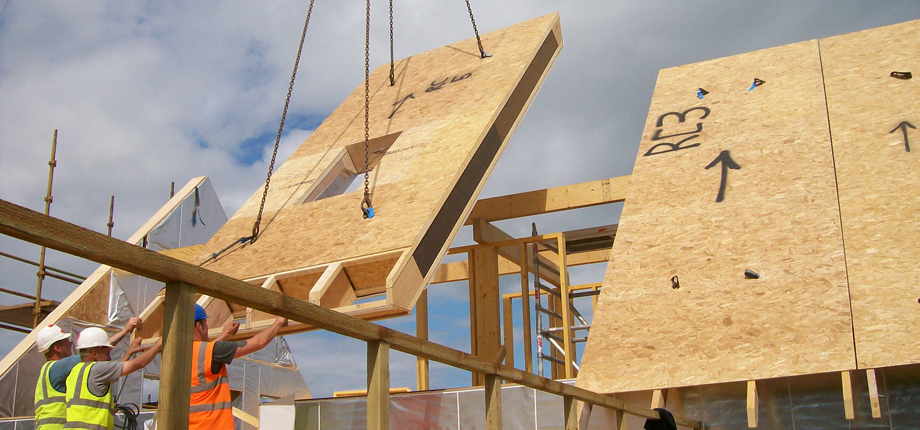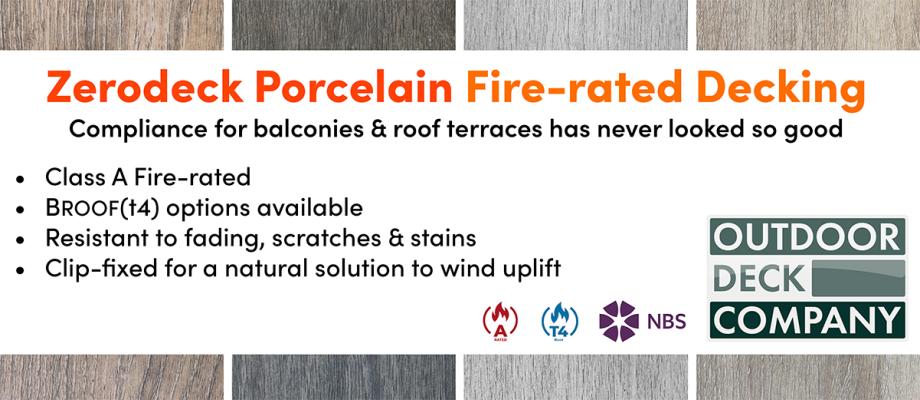2017 promises to a big year for the UK housing industry both for private, social and local authority funded projects. The Government has announced ambitious plans to combat the housing shortage, including the recent announcement of 14 new garden villages and 3 garden towns to be built across England over the next few years.
In order to meet the requirement for high quality, environmentally sound homes that are good to live in and economical to run as a result of an energy efficient structure, builders and developers must look beyond current conventional building practices and start to explore new ways of building that meet the twin needs of speed and quality.
Increasingly the use of timber, combined with modern methods of construction, including offsite, is seen as the solution.

JJI-Joists are the UK market leader
I-Joists have become an integral part of modern house floor construction, providing builders with a lightweight, speedily installed system that offers the home owner a squeak-free floor with improved floor performance. JJI-Joists are the established market leader with over 55 million linear metres produced since their introduction in 1999 and an estimated 40% of the timber I-Joist market in the UK. They are the joist most specified by architects and engineers.
The reasons for the success of JJI-Joists are numerous –
• The widest range of standard sizes available, up to 450mm in depth and 12m in length
• A nationwide sales operation through a network of authorised and fully trained distributors
• A complete software and installation package that makes JJI-Joists easy to work with both at the design and at the construction stage speeding up the process from concept to completion
• UK based design and engineering back up based at the Scottish manufacturing plant
• Regional technical field force offering on the spot support and guidance to distributors and customers.
• Complete system fully owned, designed and manufactured in the UK.
All these factors and more have given specifiers and builders the confidence to choose JJI-Joists.
Not just for floors
Increasingly JJI-Joists are being used for more than just floors. The James Jones developed Intelli-Roof concept of building cassette roof structures offsite to be craned into place, creating a watertight structure in a matter of hours has been widely developed across the industry both for domestic housing but also for larger buildings such as schools, sports halls and health centres.
Architects are discovering that using a JJI-Joist as a wall stud provides an excellent way to create a highly insulated structure with minimal cold bridging and a method that is ideal for those interested in building to Passivhaus standards. The joists are easily incorporated into cassette panels for wall structures and the 9mm web means that they can accept a whole range of thermal insulation. In fact one company, award winning, Bristol based, Modcell uses JJI-Joist based cassettes that are filled with locally sourced straw bales to provide a low cost, highly thermally efficient structure with a negative carbon footprint.
And, talking about environmental impact, JJI-Joists are the only I-Joist on the UK market that have been independently audited to PAS 2050 standard, meaning that for any project incorporating JJI-Joists James Jones is able to tell you the exact negative CO2E number. For example, a typical three bedroomed detached house with a JJI-Joist floor system in place will have a negative CO2E figure of almost 400kg. And of course JJI-Joists are the only UK manufactured I-Joist certified to both FSC and PEFC standards, ensuring complete peace of mind for companies and organisations looking for certainty in the security of their supply chain.
For housing projects that require a speed of design and construction, coupled with high quality and outstanding environmental performance, JJI-Joists provide the answer.
For more information visit www.jamesjones.co.uk/ewp
- Log in to post comments















